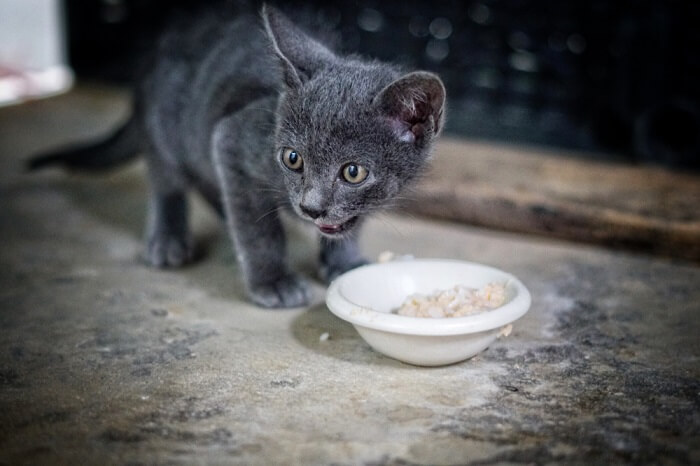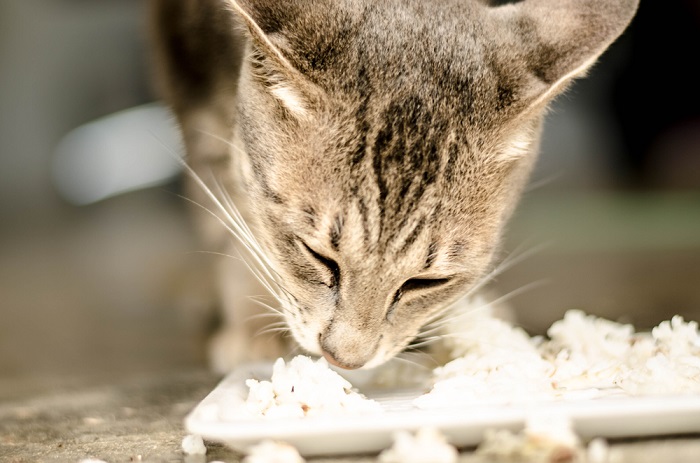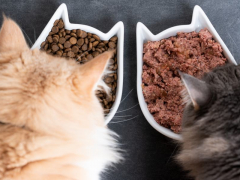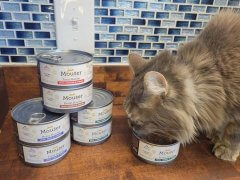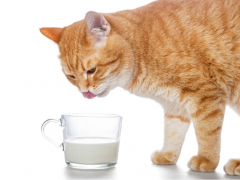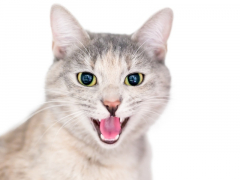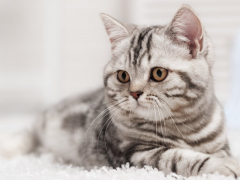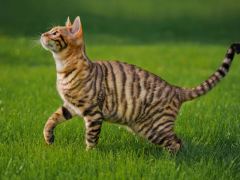Rice is one of the world’s oldest and most important food sources and almost half of the global population depends on it. You might be wondering if rice could be a worthwhile addition to your cat’s diet, or you might be worried if your cat has got their paws on some rice!
We’ll look at if cats can eat rice, how much, and whether it offers any nutritional benefits.
Cats can eat plain, cooked rice in small amounts as an occasional treat, but it should not be a significant part of their diet as they require a high-protein, meat-based diet.Quick Overview: Can Cats Eat Rice?
Toxic: No
Commonly Allergenic: No
Species Appropriate: No
How Often to Feed: Occasional
How Much to Feed: Supplemental
Summary of Content
Is Rice Good for Cats?
Your vet might instruct you to temporarily feed rice with a plain cooked protein in times of tummy upset.
If your cat has an upset tummy, your veterinarian might recommend feeding your cat cooked white rice with chicken or fish because these ingredients are plain and easy to digest. Rice absorbs moisture in the digestive tract and helps bulk up loose stools. Brown rice might also be useful for constipation because it is high in fiber.
Beyond this, rice doesn’t actually offer much nutritional benefit to cats. Cats are obligate carnivores, so they need to consume meat and animal products to stay healthy. Commercially prepared cat foods are carefully formulated to contain everything your cat needs, and will contain more meat than any other ingredient.
How Much Rice Can a Cat Eat?
Rice is very filling, so cats should only be fed a very small amount. Filling up on too much rice stops cats from finishing their usual portion of cat food, so they could miss out on vital nutrients they need to stay healthy.
If you want to offer your cat a small portion of cooked rice, speak to your veterinarian first to discuss the most appropriate portion size. As a guide, an adult cat could eat a couple of dessert spoons of rice mixed in with some fresh chicken, fish, or cat food. The rice should be thoroughly cooked with no seasoning or flavoring.
Do Cats Like the Taste of Rice?
Most cats do enjoy the taste of many human foods, and rice is no exception. Although it has a plain flavor and a soft texture when cooked, many cats like it. However, every cat will have their dietary preferences, and likes and dislikes, so don’t worry if your cat turns their nose up at a portion of rice!
How Often Can a Cat Eat Rice?
Cats are obligate carnivores, so they need to consume meat and animal products to stay healthy. Commercial cat foods are balanced to contain everything they need, and any additional food is a treat. Treats should only make up 10% of your cat’s daily food intake.
Rice is best fed a couple of times a week at the most, as it offers little in terms of nutritional value and its high carbohydrate content can contribute to weight gain. If you are feeding rice with chicken or fish for an upset tummy, you should only do so for a few days and switch back to regular cat food once your cat is better.
Is Rice Used in Commercial Cat Food?
Rice is often used as a filler in commercial cat foods. It’s a good source of carbohydrates and is useful for binding other ingredients, such as meat and fish. Rice will only make up a small percentage of the nutritional content. Cats’ digestive systems are not well equipped to digest grains like rice, and it doesn’t offer them much nutritional value.
Is Rice Bad for Cats?
If your cat gets their paws on some uncooked rice, this might cause some problems depending on how much they have eaten. Uncooked rice is very difficult to digest, and can cause bloating, vomiting, and diarrhea.
Cooked rice is very high in carbohydrates. Cats don’t actually need to consume many carbs and too many can lead to weight gain and obesity, which in turn increases the risk of diabetes and joint problems.
But plain rice may not be the only source of rice in your kitchen cupboards that your cat could get into. Rice pudding, rice krispies, and rice cakes all contain rice and could potentially be a risk to your cat.
Many of these foods are also very high in sugar and could cause some vomiting or diarrhea. Fried rice, or rice containing seasoning, flavoring, or additives can also cause an upset tummy, or even be toxic to your cat. If consumed too often or in large quantities these foods can also contribute to weight gain.
Final Thoughts
Cats can eat rice as long as it is thoroughly cooked with no oils or seasoning. However, it should not feature regularly in your cat’s diet as it is high in carbohydrates and can contribute to weight gain.
Cats also need to eat meat to stay healthy, and rice doesn’t offer much additional nutritional value. Rice can be fed to cats with an upset tummy alongside some plain cooked chicken or fish.
But rice won’t suit every cat, and you should always speak to your veterinarian before adding rice to your cat’s diet on a regular basis.
Frequently Asked Questions
Is cooked rice okay for cats?
Yes, cooked rice is OK for cats in small quantities. You should never let your cat eat uncooked rice as it is very difficult for them to digest, and can cause bloating, vomiting, and diarrhea.
What happens if a cat eats rice?
Uncooked rice can cause bloating, vomiting, and diarrhea. Rice cooked with oils or seasoning could cause an upset tummy, or even be toxic. If you think your cat has eaten raw or seasoned rice, you should speak to your veterinarian for advice. Plain, cooked rice is unlikely to cause any issues and can help cats with an upset tummy.
How much rice can I give my cat?
Cats should only be fed small portions of rice—a couple of dessert spoons for an adult cat. It should be mixed with some meat, fish, or cat food. Cats should only be fed rice a couple of times a week at the most, unless otherwise directed by your veterinarian.
Can I mix rice with cat food?
Yes, you can mix rice with cat food. However, if you are feeding your cat a good-quality and balanced commercial diet, then mixing rice with their food will have no nutritional benefit and could contribute to weight gain.
